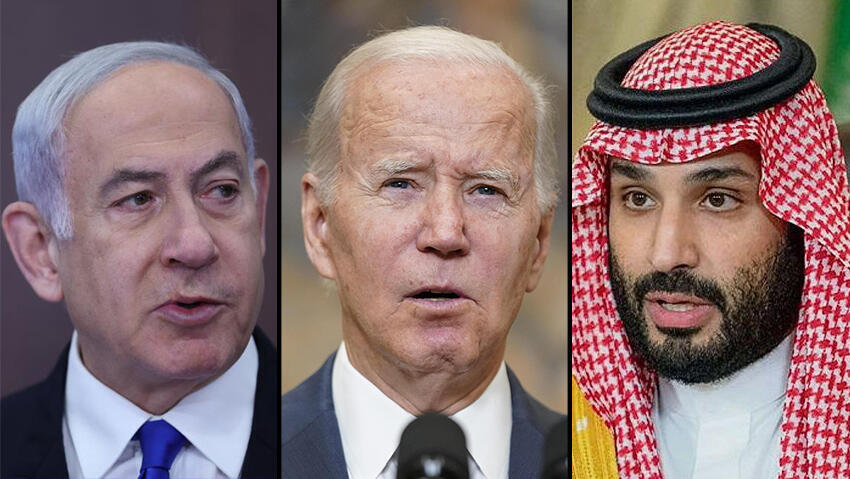Getting your Trinity Audio player ready...
The British Guardian reported on Wednesday that Washington and Riyadh were discussing a modest agreement between them, in case normalization between Saudi Arabia and Israel was not possible, in the absence of a cease-fire in Gaza. According to the report, the main issue revolves around the establishment of a Palestinian state.
The Saudi "Plan B" will include three main provisions: a bilateral defense pact, a civilian nuclear program, and economic cooperation. As part of the civilian nuclear program, Saudi Arabia would not be allowed to enrich uranium on its soil to prevent it from producing nuclear weapons.
The Guardian also reported that Riyadh offered Israel normalization in exchange for the acceptance of a two-state solution which will bring about the establishment of a Palestinian state. According to the alternative proposal, the U.S. and Saudi Arabia deal would not depend on the Israeli government's progress toward normalization.
Blinken in the World Economic Forum
(Video: DoS)
Visiting U.S. Secretary of State Antony Blinken said that without a cease-fire in Gaza, there was little chance for a normalization agreement. "The work that Saudi Arabia, the United States have been doing together in terms of our own agreements, I think, is potentially very close to completion, but then in order to move forward with normalization, two things will be required: calm in Gaza and a credible pathway to a Palestinian state," Blinken said in Saudi Arabia.
The secretary emphasized the benefit of achieving normalization with every country in the region to oppose Hamas and Iran who do not want a two-state solution. He believes that establishing a Palestinian state would rebuke everything they represent and undermine their efforts in the region.






